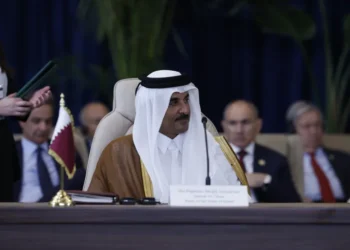China has condemned an attack that killed three of its citizens in Pakistan, demanding that Islamabad (capital of Pakistan) fight against those involved.
Three Chinese tutors and a Pakistani driver were killed in a suicide bombing near Karachi University’s Confucius Institute. The separatist Baloch Liberation Army (BLA) said it carried out the attack.
The incident posed a key challenge for a government freshly-installed after weeks of political turmoil. As a longtime ally and key investor, China is heavily involved in large development projects across Pakistan. But the BLA, which is banned in Pakistan, opposed Chinese investment in the country, with the justification that locals do not benefit.
Confucius Institutes are a key part of China’s soft diplomacy strategies across the world.
What have China and Pakistan said?
Deputy Director of the Chinese Foreign Ministry, Zhao Lijian, tweeted on Wednesday, April 27, 2022, that “China expresses its strong condemnation and great indignation at this major terrorist attack”. He urged Pakistani Authorities to “deal with the aftermath” and “resolutely fight against terrorist organizations involved in the case”.
Top-level Pakistan Officials have also scrambled to appease China since the incident. New Prime Minister, Shahbaz Sharif, made a personal visit to the Chinese Embassy in Islamabad to meet with officials. In a rare move, He also presented them with a handwritten letter, reaffirming his government’s commitment “to eliminating all militants and terrorists from Pakistani soil”.
The letter noted that “We won’t rest until the culprits are hunted down and given exemplary punishment”.
The Chief Minister of Sindh Province, of which Karachi is the capital, also visited the Chinese Consulate, reassuring officials that Pakistan “values the services rendered by Chinese experts in the country and the province” and that those involved would be “brought to justice”.
In a statement, Pakistan’s Foreign Office Spokesperson, Asim Iftikhar, termed the incident “reprehensible” and a “direct attack” on Pakistan and China relations.
Former Prime Minister, Imran Khan, who was ousted from power in early April this year (2022), also weighed in, calling the incident “yet another attack with a specific agenda of trying to undermine Pakistan-China strategic relationship.”
What did the BLA say?
The separatist Baloch Liberation Army (BLA) said the suicide bomber was a woman. The BLA released a photo of a woman in fatigues raising two fingers in salute, who carried out the attack, and named her Shariah Baloch, alias, Bramsh.
Balochistan (one of the four provinces of Pakistan), rich in natural resources, but Pakistan’s poorest province, is home to a long-running insurgency. It is being transformed by major Chinese infrastructure projects on the China-Pakistan Economic Corridor (CPEC), a network of roads, railways and pipelines between the two countries which formed part of Beijing’s ambitious Belt and Road initiative.
What is the significance of the Confucius Institutes?
The three Chinese nationals were teaching at the Confucius Institute of University of Karachi, which aimed to “deepen international understanding of Chinese language and culture, and promoting people-to-people exchanges between China and Pakistan”.
According to Pakistan’s local newspaper, since the inception of the Confucius Institutes in 2013, the faculty members, who are mostly Chinese nationals, faced threats to their safety and followed strict security protocols. They are escorted by a security detail to and from the institute every day and to their classrooms, where students would be frisked before being allowed entry.
The Confucius Institute is a Chinese government-run global education programme. The institutes are seen as a way for China to exercise its “soft power”, with China spending approximately $10 bn (£7.8 bn) a year on CIs and related programs, according to a 2018 report from the Council of Foreign Relations.
The institutes operate in cooperation with affiliate colleges and universities around the world. However, the close relationship between these institutes and the Chinese government sparked concerns over issues like academic freedom and political influence, especially over controversial topics like Taiwan, Tibet and Uighurs in Xinjiang. In 2020, the US designated the Confucius Institute as a foreign propaganda mission, saying it was “owned or effectively controlled” by a foreign government.
READ ALSO: Multiple Black Women Accuse Tim Westwood of Sexual Misconduct























